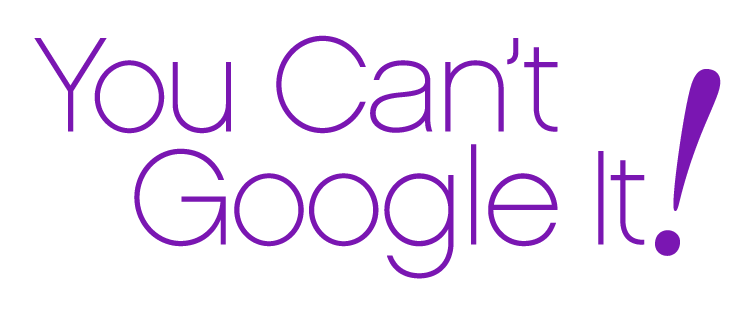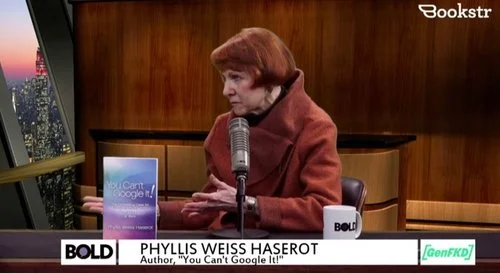Curiosity: How to Grow the Skill of Asking Good Questions
/Do you consider yourself a good questioner and understand the value that skill brings your business and personal success?
I have long maintained that you can’t be a proficient networker or business developer without a strong sense of curiosity, especially about people.
And that requires knowing how to ask good open-ended questions. Read on for tips.
Participating in an improv workshop for several years, it became obvious that responding “no” put the action (and opportunity for humor) at a dead end.
In my book, You Can’t Google it!, https://www.amazon.com/You-Cant-Google-Cross-Generational-Conversation/dp/1683505816/ref=sr_1_1?ie=UTF8&qid=1550070076&sr=8-1&keywords=You+can%27t+google+it curiosity is one of what I call the 10 essential skills explored through the lenses of 5 generations you can’t learn, acquire or practice by searching the internet, but rather must be acquired through conversations and relationship building, especially across the generations at work. I consider exercising the curiosity muscle as part of a new definition of competence.
Often, for many people, it requires a certain level of a psychologically safe environment. (More about that ins a future blog and newsletter.) But behavioral research, surprisingly, found that people actually prefer deeper conversations than superficial ones.
Here are 6 tips on how to ask good questions from New York Times columnist David Brooks and me:
Ask open-ended questions, for example, “What was it like…?” “How did you manage to…?” or “Tell me about a time….”
Pursuing your curiosity to learn is more important than being right.
If there is a disagreement, dig down to discover the underlying layers of disagreement.
Don’t try to solve a person’s problem if that is not solicited. Don’t try to seek control.
Finding how you appear in other people’s eyes helps you know yourself better. Ask questions that help both you and the other person from a high level. Some examples of questions you might ask are:
- What problem did you have that you have overcome?
- What challenges are you looking forward to conquering?
- What would you do if you were not afraid?
- Who are you most grateful to have in your life now?
Using these approaches and becoming a good, curious and empathetic questioner can break down tribal blinders and provide strategies to increase the comfort level when meeting new people or dealing with those you expect might be disagreeable. One of the questions I am often asked is “Who should reach out to begin a cross-generational conversation?” My answer is typically “Why not you?” These approaches and questions are a good tool kit for developing more meaningful and satisfying conversations and better connections.
Call to Action: Try them out, and let me know how it goes. It gets easier with practice. Ask about my “How to Ask Illuminating Questions workshop at https://youcantgoogleit.com/contact.. If I can help you further to improve your question asking and connections, contact me at pwhaserot@pdcounsel.com for a complimentary conversation.
© Phyllis Weiss Haserot, 2022
See also https://www.youcantgoogleit.com/blog/2020/good-questions-good-conversations-stronger-connections


